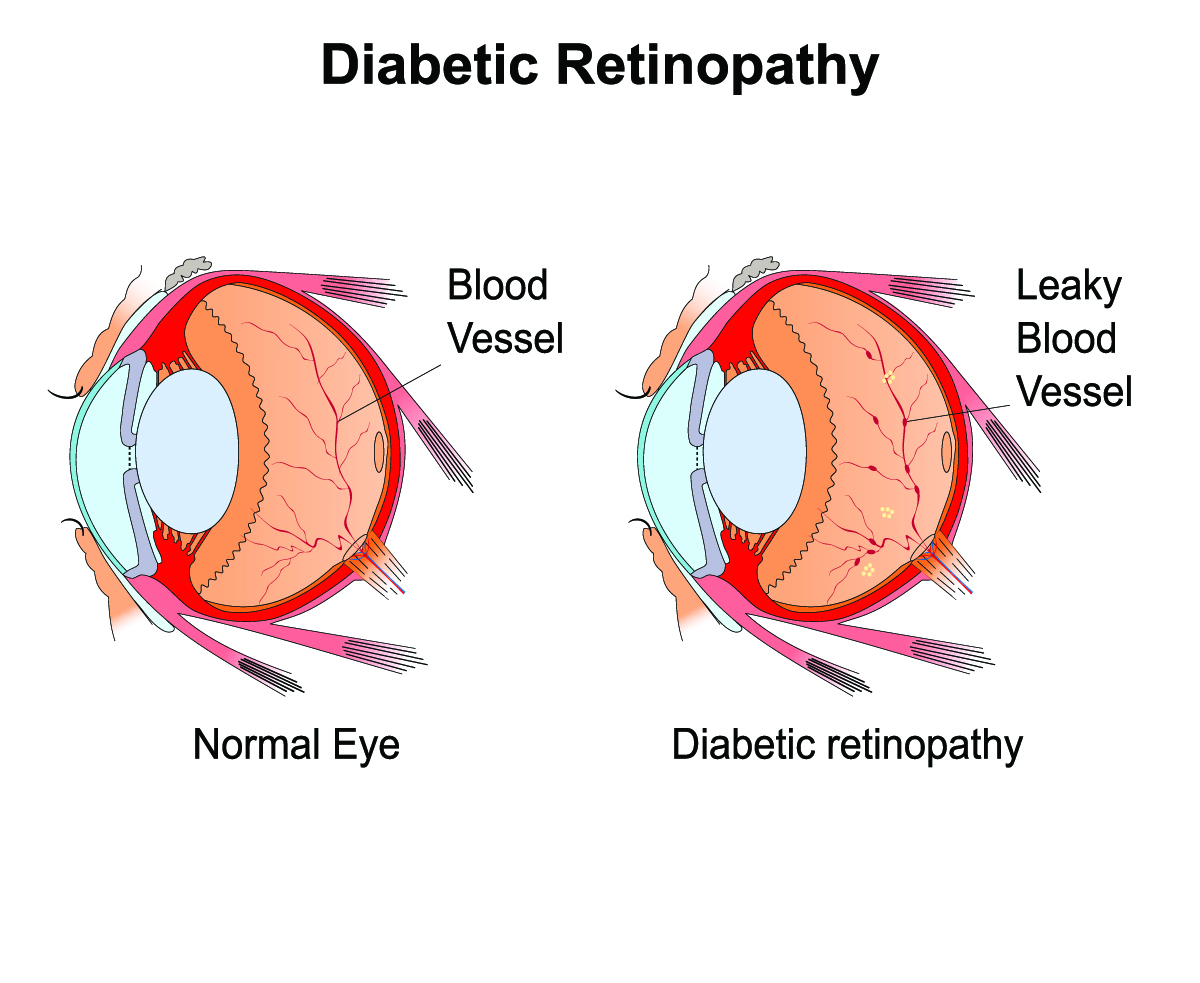
Diabetes can damage your eye health and your overall well-being. Diabetic eye disease often leads to vision loss and may cause blindness without treatment. Early diagnosis of diabetic retinopathy is crucial to saving your eyesight because treatments cannot reverse vision loss that has already occurred. However, the disease can be slowed or halted with better diabetes management and treatments with a board-certified ophthalmologist, such as one of our eye doctors at Wiles Eye Center.
How Does Diabetes Damage Vision?
Diabetes affects your eyesight both short term and over the long term. Short-term fluctuations in your blood sugar (glucose) levels can cause vision changes such as blurry vision but typically stabilize with improved diabetes management. Long-term uncontrolled diabetes leads to diabetic retinopathy.
The abnormally high glucose levels in your body damage your blood vessels, including the tiny ones found in the retinas that line the back of your eyes. These small blood vessels leak fluid and blood, damaging the retina through swelling and scarring. These are the early non-proliferative stages of diabetic retinopathy. Proliferative diabetic retinopathy occurs when new abnormal blood vessels form due to poor circulation in the retina and lead to more swelling, bleeding and scar tissue. As additional scar tissue develops, it can tug on the retina, pulling it away from the back of the eye. That is called retinal detachment and constitutes an emergency.
If diabetic retinopathy goes undiagnosed and untreated, it will cause blindness. The longer you have diabetes, the more likely you will experience vision loss.
Can Diabetic Retinopathy be Treated?
There are several effective treatments to prevent, delay and reduce vision loss from diabetic retinopathy. However, there is no cure for this eye disease. Early diagnosis and treatment lead to better outcomes for patients. Typically, treatment is needed if your peripheral vision is harmed, new blood vessels have appeared or your macula is damaged.
Treatments for Diabetic Retinopathy
Treatments for diabetic retinopathy include:
- Laser photocoagulation:Laser treatment can work well if the retina is not severely damaged. Severe cases of proliferative diabetic retinopathy may need pan-retinal or scatter photocoagulation to limit blood vessel growth.
- Vitrectomy:A vitrectomy removes some of the vitreous gel in the eye to improve your vision and is often used to treat retinal detachment or early-stage, non-proliferative retinopathy. Vitrectomy may treat severe scar tissue from diabetic eye disease.
- Anti-VEGF Medicine:Vascular endothelial growth factors (VEGF) cause new abnormal blood vessel growth. Anti-VEGF injections, steroids and medications may slow the formation of weak blood vessels.
Diabetic retinopathy requires ongoing treatment as the condition worsens. However, diabetic eye disease doesn’t have to cause blindness. Proper diabetes management, regular eye exams and early diagnosis and treatment are crucial to preserving your vision.
If you have diabetes, schedule an eye exam at Wiles Eye Center in St. Joseph and Kansas City, Missouri. Our board-certified ophthalmologists will look for signs of diabetic eye disease during your appointment.

Comments are closed here.